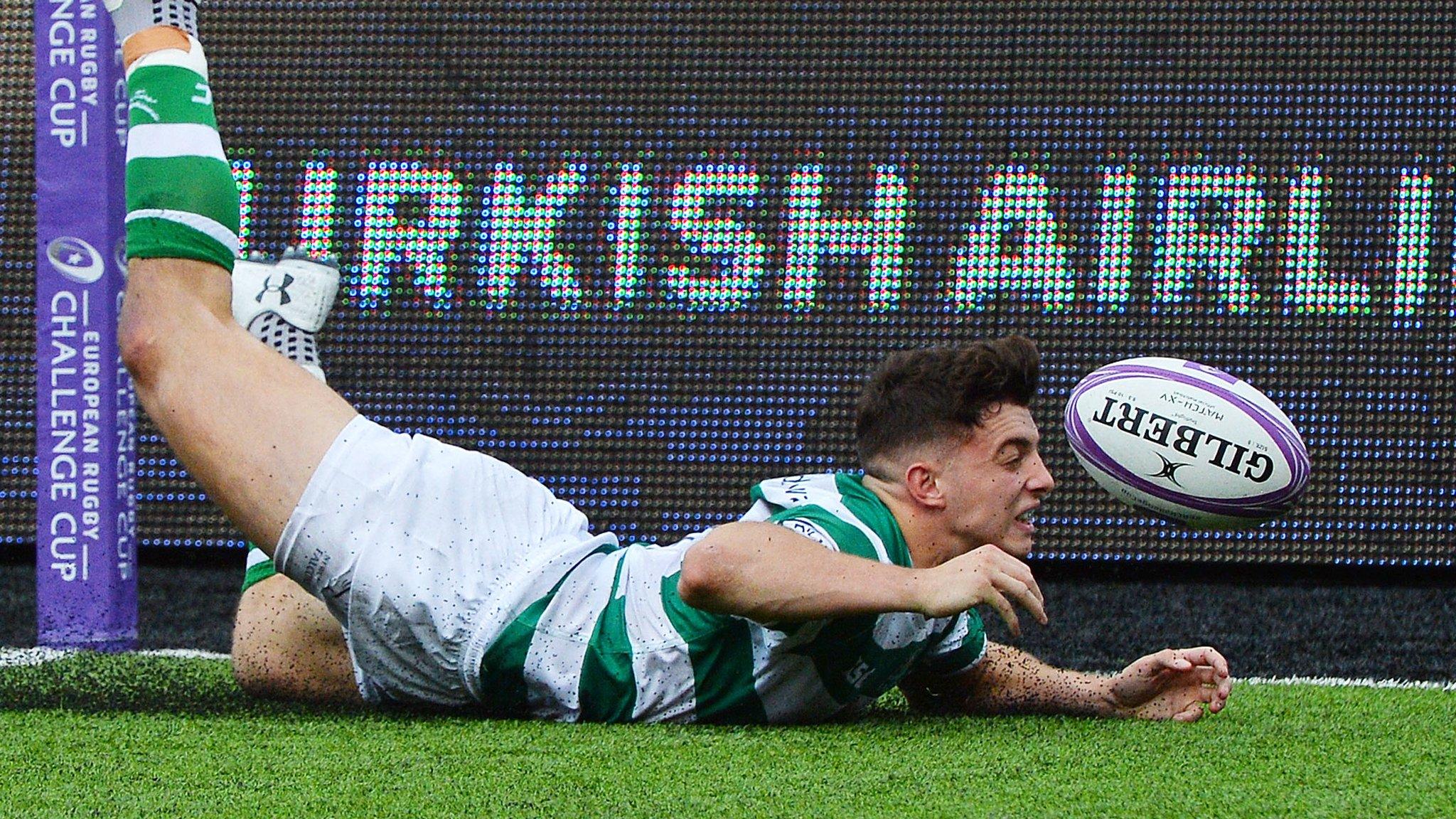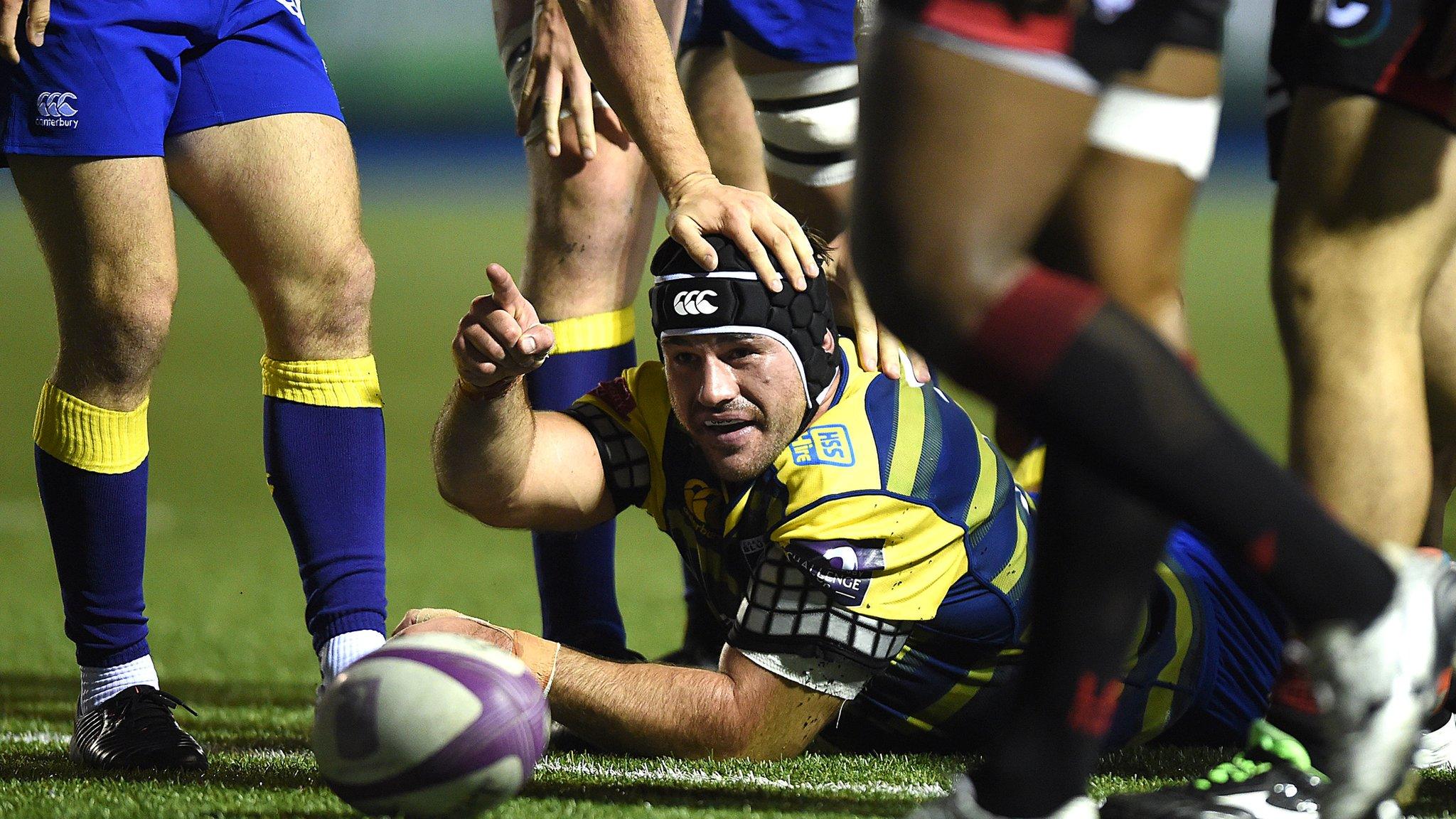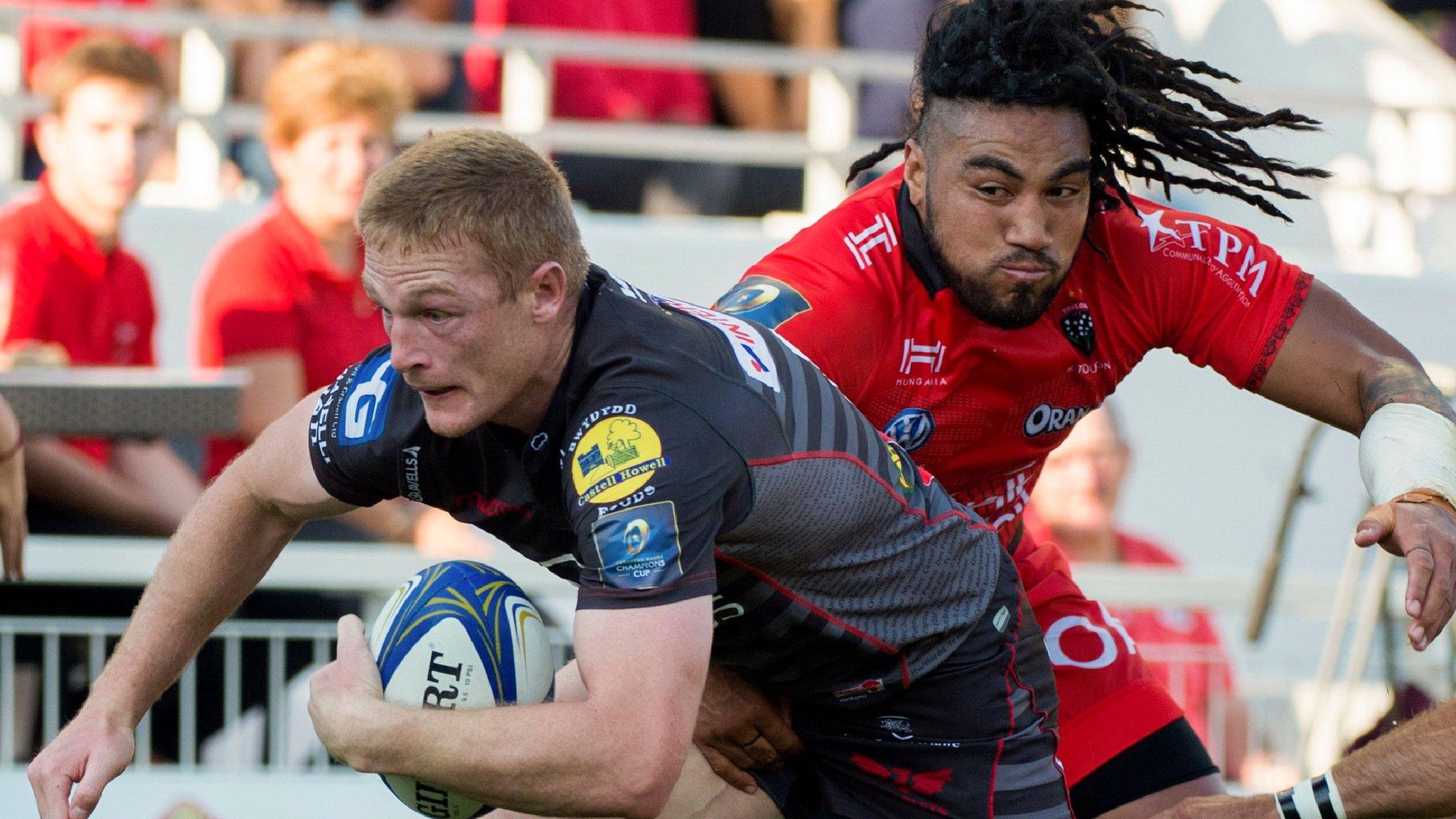Warren Gatland: WRU has three-man shortlist to replace coach in 2019
- Published
- comments
WRU chairman Davies on reform & finances
The Welsh Rugby Union has a three-man shortlist of contenders to succeed national coach Warren Gatland in 2019, says chairman Gareth Davies.
Speaking after the WRU's annual general meeting, Davies said: "We have been very busy boys over the last six months talking to various people."
He added the WRU faces a "difficult" financial future because of a general "economic squeeze".
Davies also outlined early plans for reforming Welsh rugby's governing body.
Gatland's successor unlikely to be Howley
Gatland, who took the Wales job in 2007, is a two-time Lions head coach and three-time Six Nations title winner, including two Grand Slams.
As such, the 54-year-old is expected to be in high demand when his contract expires after the next World Cup.
Davies says Wales have been looking far and wide to line up the New Zealander's replacement.
"We've been speaking to eight to 10 people who may be interested in the job and have the ability to undertake the job," Davies said.
"We are down to about three candidates and will be looking at a more formal process in the new year."
Gatland does not expect his assistant coach, Rob Howley, to be among those candidates.
"Having spoken to Rob on a number of occasions, my understanding in always talking to Rob in 2019 he was planning to finish with the national team, planning to leave Wales and look for opportunities elsewhere," Gatland told BBC Sport Wales.
"He's never come out and said anything, there's always been speculation from other people about what he's doing.
"I wouldn't expect that Rob would be one of those people on that list having had previous conversations with him about what he's planning to do."

Warren Gatland took Wales to the semi final of the 2011 World Cup and the quarter-final in 2015
Davies on 'economic squeeze'
Davies said a combination of factors - including sponsorship and the impact of Brexit - meant the "economic environment" for the WRU is "very challenging".
The WRU faces a potential reduction in money from the Six Nations as organisers negotiate a new title sponsorship deal.
And Davies warned member clubs and regions they must not take future investment for granted as the WRU seeks new ways of raising income.
"We've invested more money back into both the professional and community game than ever before. But clubs should not expect the investment to increase every year," he said.
"So we should not take it for granted that our profit and money we get is going to increase. The challenge is not just for the smaller clubs but for the whole of the Union generally.
"Our income has levelled out. We can't increase ticket prices and sponsorship revenue is the same, so we need to look at our ways to raise money such as staging the Anthony Joshua fight and Ed Sheeran concerts. These events are essential for our income and to keep the smaller clubs running."

Anthony Joshua and Kubrat Pulev pose at the Principality Stadium ahead of a fight that will attract a crowd of 90,000 people
Davies on reforming the WRU
Davies also outlined proposals aimed at "streamlining and modernising" the WRU's structure.
He proposed cutting the WRU board to between eight and 12, and for the current nine districts to be based more on geography.
As it stands, the WRU board is made of 20 members and 14 district representatives.
Davies also presented a proposal of a separate council to take responsibility for the grassroots club game.
"The current board is sometimes unwieldy simply by virtue of its size," said Davies.
"It's not just at the WRU that we have identified a need to change and modernise. We would be following suit with other major sports governing bodies who are instigating important change, like the Rugby Football Union, British Cycling, the ECB [England and Wales Cricket Board] and the Football Association.
"In general, sporting bodies are now working towards having boards of between eight and 12 members and underpinning the mechanism for change is a drive to increase diversity amongst the personnel on the board."
This proposal will be put to a future vote of the member clubs of the WRU at a special general meeting to be determined later this season.
- Published14 October 2017

- Published13 October 2017

- Published15 October 2017
